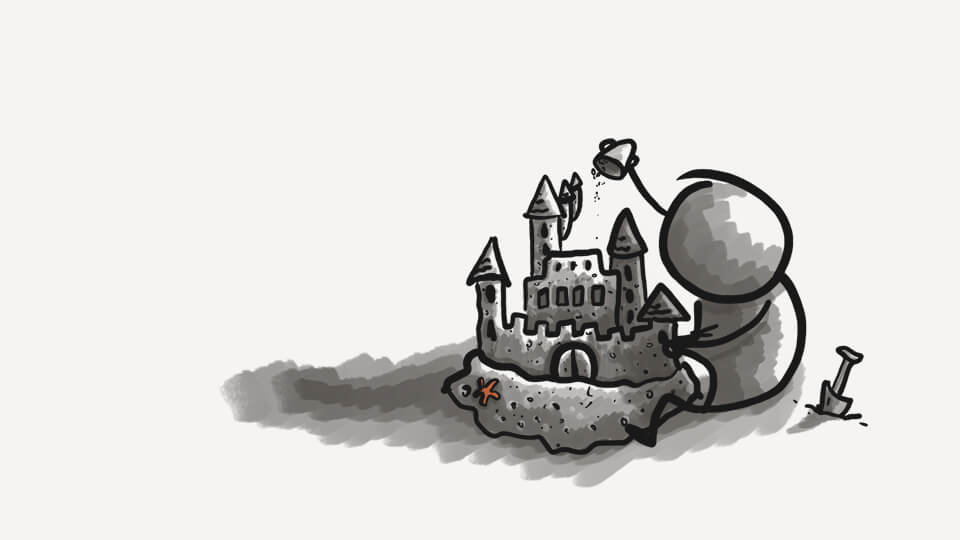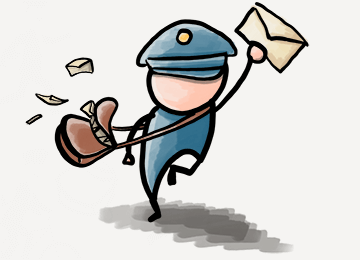For many, May is going to be their second month in quarantine, for some, even a third. And what we’ll see, much like with the gradual spread of the virus, will be the growing effect of national lockdowns on people’s mental health.
I’m no psychologist, and I can’t claim to have figured it out. For me, some days are definitely harder than others. But I found ways to cope well, and I wanted to share.
Helping Others
Sadly, I can no longer hang out with the elderly Mr. Shultz, who lives downstairs because he’s in the highest risk group, but I still check up on him to ask if he needs anything.
I always found pure pleasure in helping others, and it’s been no different through the pandemic. I’ve donated to our favorite London Theatre, helped some guy write his visa extension papers, found a dance shoe store in Berlin that needed some copywriting in English, and I’m beta-reading for someone I just met on Twitter. All in all, I’ve offered my professional help for free to anyone who needed it because of the pandemic.
I’m beginning to think the act of helping does more for me than it does for those whom I’ve helped.
Thinking on Paper
The somewhat antiquated tradition of journaling has its roots in people’s need to gather their thoughts. Writing them on paper remains one of the best ways to do it.
And it has to be paper, because writing by hand, thanks to being slower than typing on a keyboard, helps you slow down and organize your thoughts. Which makes it perfect for some self-reflection.
Meditation and Mindfulness
Though it pains me to admit my own ignorance, I used to think meditation was for… well, for others. You know, spiritual types, or people who can’t keep up with life. Me? Not so much. I didn’t even bother to give it a try.
But, last week, I have climbed to the pinnacle of Mount Stress and became one with anxiety. It was too much.
So I listened to my wife (not something I do lightly) and tried an app for meditation called Am Mindfulness.
Turns out a few minutes of mindful meditation a day was all I needed to return to a familiar and comfortable level of tension, and be able to focus on work again.
Using my Energy on Things I Can Control
Read something by Seneca or Marcus Aurelius, and you’ll realize how little the world has changed. With their problems, Greeks and Romans of antiquity didn’t much differ from present-day Londoners or New Yorkers. The deterioration of moral standards, overindulgence by the new generation, and procrastination—just to name a few issues—were as much in vogue 2000 years ago as they are today.
One piece of advice from the ancient school of stoicism that stuck with me was this: expending energy on things you can’t control is a waste, and only leads to frustration. Direct your energy instead to doing something you can control.
Nowadays, there’s little we can do to make the corona vaccine appear faster. But there are things we can do for ourselves and those around us.
Dressing for Work
Even though I work from the kitchen (I drew the shorter straw), even though no one can see me here, and that nobody would care if I sat here with nothing on but pants and a faded-out t-shirt, I still dress for work. Long trousers with a complementing shirt, and a leather belt. Laugh all you want, but this tells me I’m at work.
A Dedicated News Day
I gave up reading the news more than once every few days, and it did wonders for my well-being.
Previously, I read as much of it as I could to stay informed and engaged, as if by digesting more articles I could single-handedly speed up the development of a cure.
But, at this point, checking the news is like picking at a scab. Here, let me sum up the next three weeks of headlines for you:
“Many More Dead.”
“Signs of Recovery in Countries that Reacted Fast.”
“The Curve has Smoothed out, but not Flattened.”
“United States at the Brink of Collapse.”
“World GDP is Falling off a Cliff.”
“Another Vaccine has Entered Human Trials.”
But “No Vaccine Available Until Next Year.”
“Hints at Long-term Effects of Corona.”
Whatever your personal situation, the news is not there to make you feel better. Nearly all media companies are trying to monetize your fears, hopes, and attention.
Coming to Terms with Negative Emotions
We used to take so many things for granted, and now they’re gone. Of course, everyone feels bad about it. Some psychologists describe this collective depression as grief for normalcy, which is probably more accurate than anyone would like to admit.
But negative emotions are a part of life. Like bruises, they come in many interesting shapes, shades, and sizes, and eventually fade. No point worrying about them too much.
Zooming Around with Friends
Getting drunk on Zoom with our closest friends on a Saturday night was the best thing we did last week. Period. We talked rubbished, moaned, complained, made many new inappropriate corona jokes (“I bet this isn’t what Prince William had in mind when he thought of… coronation”), filmed impromptu talk show with fake internet personalities discussing the health benefits of the anti-vaxxer movement (“Never has natural selection been so accessible for those interested in it.”)… I can tell you, if the video ever got out, someone would probably end up suing us. But it was fun.
On a much milder note, but also Zoom-related, a regular highlight of my day during the week is the morning writing session we do over zoom at the Online Writing Cafe, which is basically our take on a co-working space for writers. (Come and say hi, if you like!)
Social distancing doesn’t have to mean social isolation, and being around other people helps.
Watching history unfold is an uncomfortable experience, and it tends to make people nervous. But it’s no reason to give in to despair. Instead, this is a great time to offer a meaningful human connection because everyone needs it more than ever.

